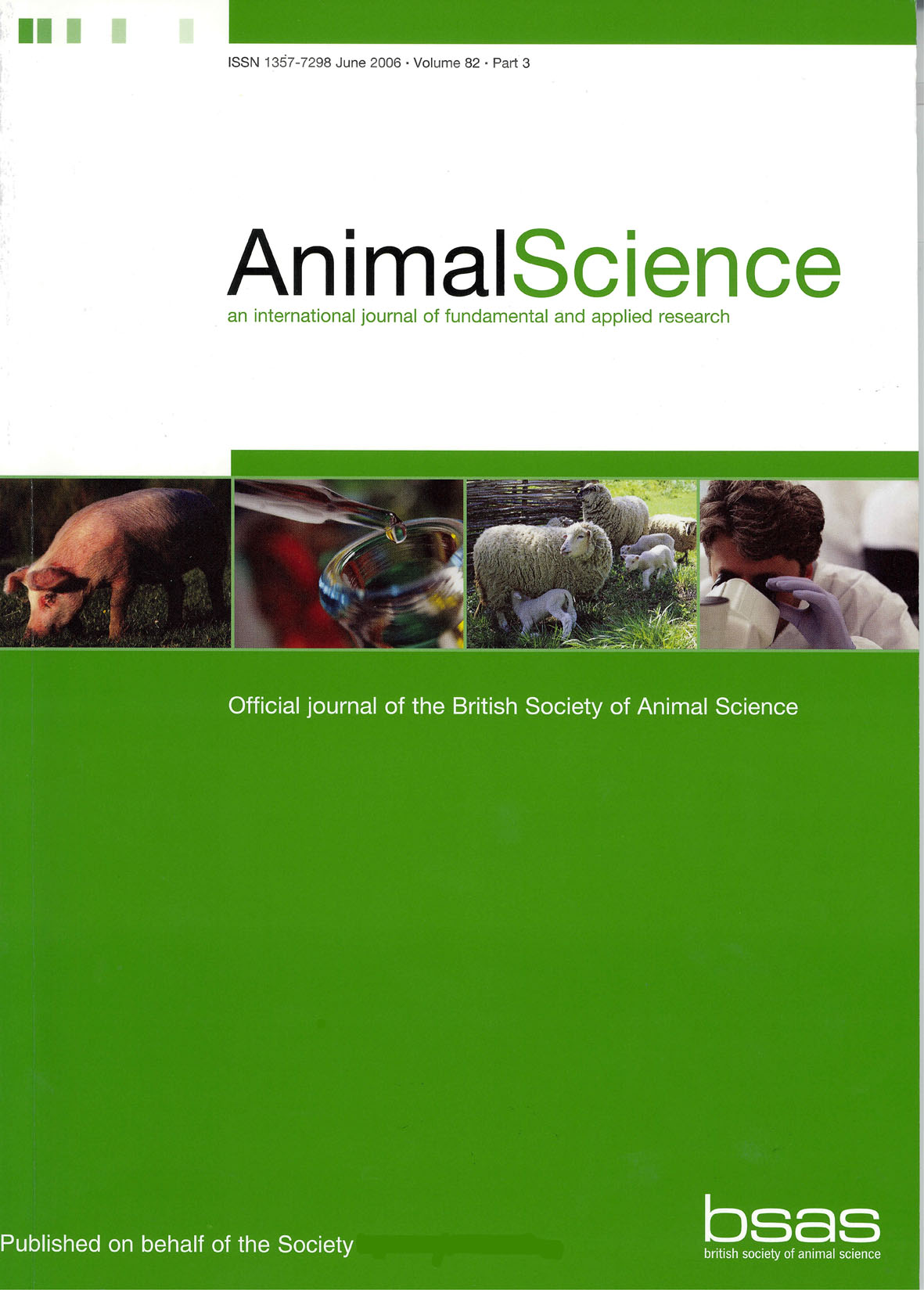Article contents
Intake and utilization of energy from ammonia-treated and untreated wheat straw by steers and wether sheep given a basal diet of grass pellets and hay
Published online by Cambridge University Press: 02 September 2010
Abstract
Two experiments, experiment 1 with six steers in a 3 × 3 Latin-square design and experiment 2 with four wether sheep in a cross-over design, were conducted to study the effect of species and ammonia treatment on intake and utilization of the energy of untreated wheat straw. Treatments were: (1) untreated wheat straw offered ad libitum on top of a basal diet (B) consisting of hay (0·25) and grass pellets (0·75) (UWS), (2) ammoniated wheat straw offered ad libitum plus B (AWS) and (3) ammoniated wheat straw offered at a restricted level plus B (AWS-). B was offered as a maintenance diet for both species and AWS- was only studied in steers. Voluntary intake of AWS zvas higher than that of UWS. No significant differences emerged between whole rations UWS and AWS with regard to energy digestion (ED), energy metabolizability (ρ = metabolizable energy (ME) I gross energy (GE)) and losses of digestible energy (DE) in urine and methane (average 187 J/KJ DE), but the efficiency of utilization of ME for growth (kg) was significantly higher for AWS than for UWS. ED and ρ of the straw part of the ration was significantly higher for AWS than for UWS. AWS- and AWS did not differ significantly with regard to ED, ρ and DE losses in methane and urine. Steers had a higher intake per kg0·75 per day than wether sheep. Across species, digestible energy intake (DEI) of the whole ad libitum fed diets was related to live weight (M)0·946 (s.e. of exponent 0·0152). ED and ρ of the straw part of the rations did not differ significantly between species, but steers had a significantly higher ED and ρ of β than wether sheep. Steers excreted a significantly lower proportion of DE in urine and a significantly higher proportion of DE in methane than did wethers. Total energy losses in urine and methane, however, did not differ between species.
Information
- Type
- Research Article
- Information
- Copyright
- Copyright © British Society of Animal Science 1993
References
- 3
- Cited by

